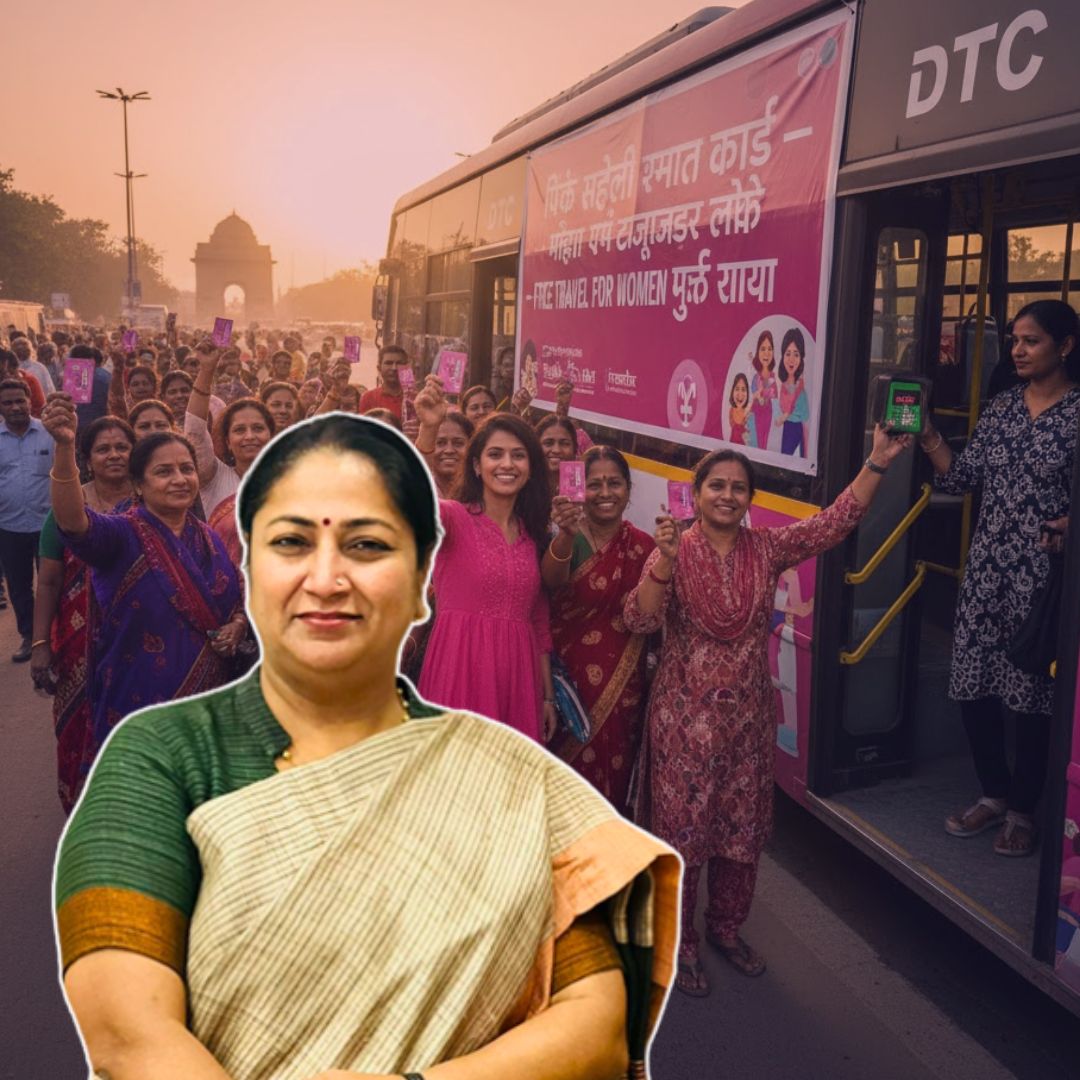The Delhi government has officially launched the ‘Pink Saheli Smart Card,’ a pioneering initiative allowing women and transgender persons aged 12 and above, who are bona fide residents of Delhi, to travel free of cost on all Delhi Transport Corporation (DTC) and cluster buses.
Introduced on November 2, 2025, by Chief Minister Rekha Gupta, this digital card replaces the paper-based pink ticket system and aims to make travel safer, more accessible, and dignified.
The card operates within the National Common Mobility Card (NCMC) framework, enabling both free travel and recharge options for use on other public transport modes.
Officials highlight this program as a major step toward women’s empowerment, inclusive urban mobility, and sustainable public transport in Delhi.
The Pink Saheli Smart Card: A New Era for Women’s Mobility
The Pink Saheli Smart Card was unveiled as part of the city’s bold push to enhance public transport accessibility for women and transgender persons. It responds to an identified need for safer, hassle-free commuting options for these groups who constitute nearly half of daily bus ridership in Delhi, with over 10 lakh women traveling by DTC and cluster buses daily.
The card carries the cardholder’s name and photograph, preventing misuse of benefits. It replaces the old paper-based pink ticket system, which had been prone to fraud and operational inefficiencies since its launch in 2019 when the earlier scheme issued over 150 crore tickets.
Registration for the card is online, requiring applicants to undergo KYC verification, ensuring only genuine Delhi residents benefit from the scheme. Once issued, the smart card can be topped up for travel on other mobility services, linking the user into the broader NCMC-enabled transport ecosystem.
Officials detail that back-end integration – including card readers installed in buses – is nearly complete, with the phased rollout already underway.
The scheme not only provides financial relief to women and transgender passengers but also encourages increased use of public transport, aimed at easing the city’s chronic traffic congestion and pollution issues.
Background and Context: From Paper Tickets to Smart Cards
The Pink Saheli Smart Card builds upon Delhi’s earlier free travel initiatives for women, first implemented in 2019 with the classic paper pink tickets issued on Bhai Dooj. While successful in increasing affordability and accessibility, the earlier system’s limitations included misuse by non-residents and manual ticketing errors, leading to operational challenges.
The digitisation through the Pink Saheli Smart Card marks a significant modernisation, bringing transparency, security, and ease of access.
The Delhi Transport Corporation undertook extensive consultation with women’s groups, transport experts, and community organisations to arrive at this inclusive design. The smart card also fits into a broader vision of gender-sensitive governance and promotes the city’s commitment to equity and safety.
Notably, the scheme explicitly includes transgender individuals, ensuring gender inclusivity in public welfare initiatives.
Applicants must provide valid identity proof and Delhi residence documentation during registration, reinforcing the scheme’s focus on authentic beneficiaries and limiting misuse by people outside the capital.
According to statements, the programme will operate on an automated fare collection system utilising NCMC-compatible Point of Sale and Electronic Ticket Issuing Machines, supporting seamless tap-and-go usage.
Officials’ Views and Operational Details
Chief Minister Rekha Gupta hailed the initiative as “a significant step towards making travel easier and safer for women in Delhi,” emphasising the government’s dedication to fostering women’s empowerment through mobility.
Transport Minister Kailash Gahlot remarked that the card system will enhance transparency in subsidy distribution, improve transport data for better planning, and create a respectful travel environment.
Applications are made through the Delhi Transport Department’s official portal, with KYC verification carried out at designated banks before cards are mailed directly to applicants. No cards are issued at bus depots to maintain security and order.
The smart card has a lifetime validity, with unlimited free rides on DTC and cluster buses and recharge capability for other public transit, supporting an integrated transport network in Delhi.
The Logical Indian’s Perspective
The Pink Saheli Smart Card represents a progressive and empathetic leap in transforming public transport from merely a means of conveyance to a tool for social empowerment and equity.
By embedding safety, convenience, and technology, the Delhi government has set a shining example for urban policy that fosters inclusivity and dignity for women and transgender persons.
This initiative aligns with the values of kindness, dialogue, and coexistence by addressing systemic barriers in mobility and enhancing daily lives with thoughtful governance.
However, for such ambitious schemes to succeed fully, continuous monitoring, smooth implementation, and genuine community engagement remain critical.
The Logical Indian believes this is a positive move towards gender-sensitive urban development.











